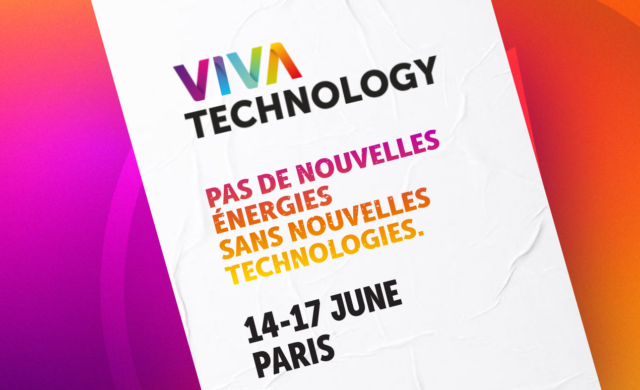Breaking news :
Bloomin has joined Zest making Zest the leading employee engagement and experience solution on the french market! 🎉
Generation Y: The New Rules Of Employee Engagement |
If you haven’t seen the Youtube sketch about the “Millennial Job Interview,” you can probably picture it. A 20-something interviewee says she’s “proficient in technology”… but doesn’t know how to use Microsoft Excel. She’s brimming with confidence, but won’t start work before 10:45am. And she needs validation as much as she needs her skim milk vanilla chai latte.
These stereotypes are nothing we haven’t heard before. But the truth is that Millennials, more kindly known as Generation Y, have a lot more to offer their employers than just social media skills (even if there is a grain of truth to the chai latte thing).
Employees born between 1980 and 2000 are a growing presence in the economy. The largest generation in the US workforce, they currently make up 35% of the working population. By 2025, that figure will rise to 75% (Source: Forbes).
Generation Y employees aren’t like their parents (the Baby Boomers) or Generation X. They place a higher value on maintaining a healthy work-life balanced. They also have different long-term careers expectations, choosing roles that are offer a fast and clear climb up the ladder (and yes, they do think long term).
A lot of these differences are good news— like the fact that Millennials are the most educated generation in history. They’re also great team players, communicators, and that’s not even mentioning their black belt Twitter skills.
Savvystartups are trying all kinds of tricks to lure the creme de la Y. Google led the way in the 2000s with “campus” workplaces, nap rooms and personal project Fridays.
Since then, the fun, creative workplace has become de rigueur in the startup world. Walk into any young tech company, from Boston to Berlin, and you’re more likely to see a ping-pong table than a fax machine. The coolest companies hold their team-building exercises in cat cafés.
This generation has a new set of rules for employee engagement. But are we doing enough? Should we be offering more than providing free beers on Thursdays and making it acceptable to wear jeans in the office?
It turns out most employers are overlooking a crucial tool for getting their millennial employees on board: feedback.
There are four reasons why feedback is key to managing Generation Y. The first is that they’re all about collaborative work, and they need honest, instant communication to achieve just that.
Gen Y has been unfairly labelled the “me generation.” It would be more accurate to call them the teamwork generation. They’re highly motivated to work with others, and they’re good at it, too.
Coming from an educational culture that places a strong emphasis on group work, they are happy to contribute to teams rather than putting themselves first. 88% of the Generation Y workers we surveyed prefer a collaborative work culture over a competitive one (Source: Cassandra).
88% of Gen Y workers prefer a collaborative work culture over a competitive one.
That love of teamwork goes hand-in-hand with their love of feedback. On social media, they ‘like’ and comment on others’ photos right away and expect their friends to do the same. This need for instant gratification continues into the workplace, where they show a strong preference for frequent, open communication with managers and colleagues.
Professor Aaron Nurick, who teaches management and psychology at Bentley University, explains that the proliferation of social media or the web has lead Gen Y workers to “yearn for more personal communication and real relationships, in part because these opportunities have become so rare for their generation.” They’re the generation that proves there was a “me” hiding in “team” all along.
The second reason feedback is so essential to Gen Y is their work style: fast, flexible, and connected. Employers who allow flexible work arrangements have a huge advantage, especially when coupled with state-of-the-art technology and apps. These tools have become a necessity at boosting productivity and engagement with the Ys.
To those born after 1980(ish), technology isn’t remarkable: it’s something they take for granted, and a powerful tool for productivity and engagement. In the US, over 96% of Millenials own a smartphone (Source: Nielsen) and 89% of them regularly read their work emails after working hours (Source: Bentley University).
Generation Y use smartphones and connected tech across their many apects of their personal and professional lives. They’re just as comfortable ordering sushi on an app as answering work emails from Starbucks or putting together a collaborative Powerpoint on the cloud.
For them, technology is more than an accessory: it’s a way of life. And while they value face-to-face contact, they expect to use technology for a lot of the things that were formerly done the slow way.
With all this smart tech, Millennials are looking for a new employee experience. They want flexible hours and working arrangements, like telecommuting with meetings on Skype. They’re work flexitarians, with a preference for working like freelancers.
As a result, they need frequent communication to keep their priorities straight. They’ll thrive with open feedback on what’s going on and whether they’re on the right page.
And, unlike previous generations, when they enter employment, Generation Y workers are already familiar with most of the technology they need to stay connected.
Finally, feeling personally invested in their work is a high priority for Gen Y, yet only 29% feel truly engaged at work (Source: Gallup). This is Generation “Why”: they need to feel motivated and understand what’s expected of them.
95% say they consider a company’s ethics very important when choosing a job (Source: Bentley University). Salary does matter to them, especially since they often have huge debts by the time they enter the workforce, but it’s rarely top of the list.This is the generation that came of age during the 2007 economic crisis, when fortunes collapsed overnight.
Above all, Millennials are looking to make an impact. They want to feel that their job does good on a day-to-day basis, beyond what they’re earning. Their ideal job is one that makes them feel like they can contribute — to the company, if not the world. They want a sense of responsibility and opportunities to use their creativity and problem-solving skills. The flip side of this is that they very quickly become disengaged when they don’t feel they’re making a positive contribution.
Communication and a sense of mission are essential to keeping them on board. Giving and receiving feedback helps them feel empowered and engaged with their professional life.
More than any other generation in the workforce, Millennials blur the boundaries between business and personal lives. Their connected, flexible way of working is part of a larger shift.
In the right job, they’re willing to go all in. But they need to feel that their position lets them develop and grow.
To them, the ideal manager is equal parts boss, mentor and coach. Picture Kris Jenner as a “Momager” and you’re halfway there.
But control freaks beware: Millennials hate micromanagement almost as much as they hate having no bars on their phone. Measurable goals and frequent feedback help them stay on track without feeling stifled.
Gen Y workers are creative, technically skilled, and enjoy contributing to common goal. All this is fundamentally good news, but it requires a willingness to invest in people and make them feel valued.
The best way to get the most out of Millennials is to cultivate a “culture of empowerment” where employees have the authority to make decisions, with meaningful commitments and accountability. They’re not afraid of feedback and they’re open to improving their skills.
When they find the right job, millennials make loyal employees: a study by Kopertynska and Kmiotek found that they “will work longer in a relevant organization, but only when the conditions and work itself suit them… Employers need to revise their approach to motivating and building employee engagement.”
For Gen Y, engagement is becoming a two-way street.
Give them a sense of purpose and open communication, and this generation is ready to shine. With or without a ping-pong table and a nap room.






| This website can use cookies to remember your login information, to collect statistics for website optimization, and deliver content tailored to your interests. |
Agree
Read more
|